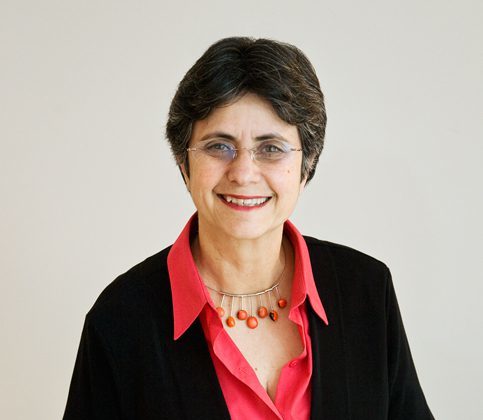PROFILE: Virginia Dominguez ’73 GRD ’79, an anthropologist looking to the future
The News sat down with Dominguez, a 2022 Wilbur Cross Recipient, to discuss her Cuban grandparents, the first class of Yale College women and anthropology’s bad rap.

Courtesy of Virginia Dominguez
Virginia R. Dominguez ’73 GRD ‘79, a leading anthropological scholar and professor at the University of Illinois at Urbana-Champaign, logged onto her Zoom interview flaunting a close-up picture of a cactus as her background.
“If you don’t like it, I’ll change it!” she exclaimed before switching to a bright yellow sunflower.
Dominguez has always been interested in tracing human behaviors. She spent half of her professional life studying concepts of race in the US and half studying concepts of race in Israel.
Earlier this semester, Dominguez was awarded the Wilbur Cross Medal, the highest honor bestowed yearly by the Yale Graduate School of Arts & Sciences on distinguished alumni. Dominguez, scholars say, has “left a dramatic mark on the field” by extending anthropological analysis to include anthropologists’ own identities.
“She has brilliantly theorized the mutability of racial, national and other identity categories and insisted on the importance of social classification,” said Jia Chen GRD ’00, an officer of the alumni association.
Graduate School Dean Lynn Cooley added that Dominguez’s “institutional roles have lit the way for scholars around the world, and she has placed special emphasis on building networks that include anthropologists trained and based outside the United States.”
An emigré born in communist Cuba, Dominguez was partially trained as a Caribbeanist. She is currently working on a sort of passion project, following her own family’s history in 19th and early 20th century US-occupied Cuba.
She hopes to uncover more information about her maternal grandmother, with whom she has always felt close.
“One of those things that happens as I get older is I’m more selective about what I do,” Dominguez explained. “I’m actually kind of interested in imagining her life, long before I was born.”
Much like her research itself, Dominguez’s discussion of her scholastic career is frequently interrupted by anecdotes and comments on her life as a professor. That she cares deeply about the students and the discipline she teaches is apparent.
“I don’t know all that many people who know about anthropology,” she admitted. “It sounds odd and ancient — I think anthropology has a problem with its reputation.”
She is not wrong. When you Google the term “anthropology,” the homophonic boho-chic women’s clothing store — spelled Anthropologie — pops up before any information regarding the academic study.
Dominguez acknowledges the colonial underpinnings of her discipline but believes that making anthropology more accessible to non-anthropologists is key to its modernization.
“What we’re really doing most of the time is [studying] how to approach societal phenomena and ‘-isms,’” she told the News. She likes when she sees anthropologically-trained professionals working in other fields, bringing their know-how to politics, business and the arts.
“Obama’s mother was an anthropologist!” she piped up excitedly. This is her anthropological fun fact of choice.
Dominguez fostered her love of anthropology over a decade at Yale; she arrived as an undergraduate student in 1969 as a part of the first class of women in Yale College.
There were 200 of them, she remembered, all sequestered in Vanderbilt Hall on Old Campus.
“’69 Vanderbilt,” she mused of her freshman year dorm. “I went to Catholic school. I had no idea why these guys were climbing to our floor in ’69 Vanderbilt!”
Someone eventually told her.
As one of Yale’s first women, and a woman in STEM at that, Dominguez recalled a freshman fear that many Yalies will empathize with: failure.
She remembers crying as she walked down Science Hill after her first-year chemistry lab: “The only thing I wanted to do was not flunk out,” she laughed.
She would eventually graduate Summa Cum Laude, but Dominguez often found herself worried about her own worth.
“I had no idea if I was any good,” she explained.
Over time, she learned to not be a perfectionist – her advice for current students? Don’t be arrogant, but don’t be overly modest either. Don’t be a perfectionist, but keep trying at the things you really care about. Learn to think on your own, and to have respect for yourself and others. Follow your passions, not what other people think makes sense.
Thinking back to the time she chose her major, Dominguez noted, “I was sort of choosing between having all the answers and working on a mess.”
She chose the mess, and four decades later she has a life of scholastic achievement to show for it.
“I like studying problems,” Dominguez grinned, “and how people deal with those controversies… a lot of my classmates have retired, but I can’t imagine not doing what I do.”
Dominguez is the second subject in a profile series on the 2022 Wilbur Cross Medal recipients.







